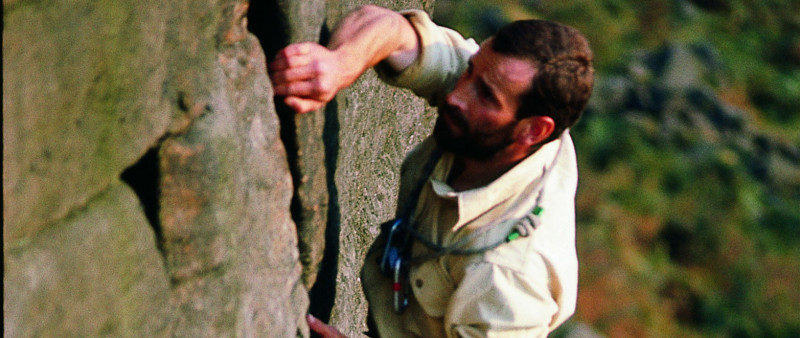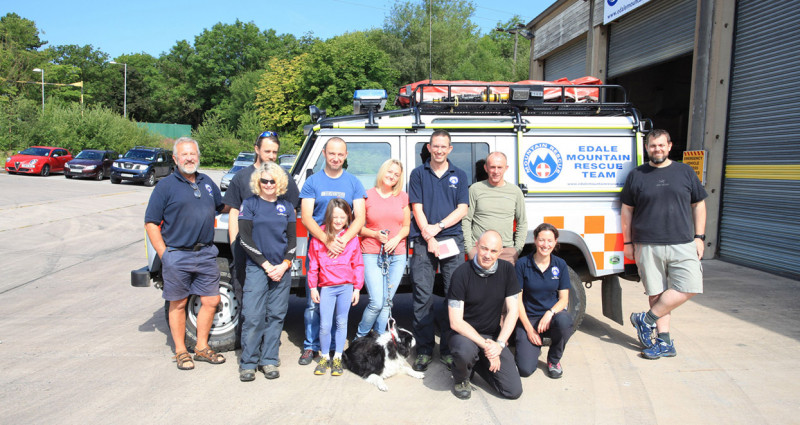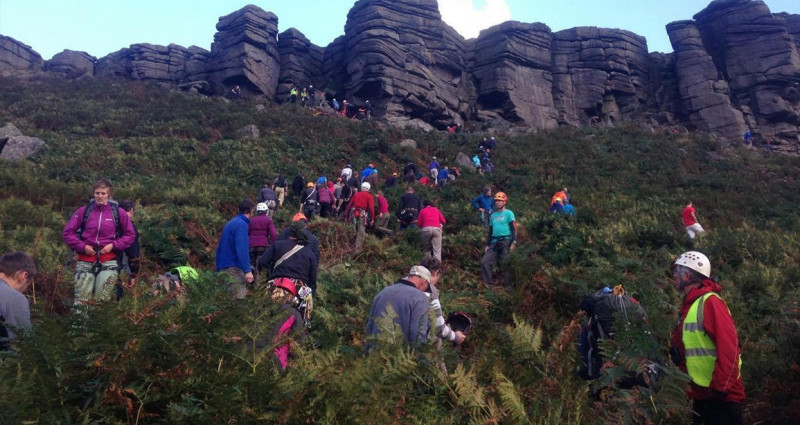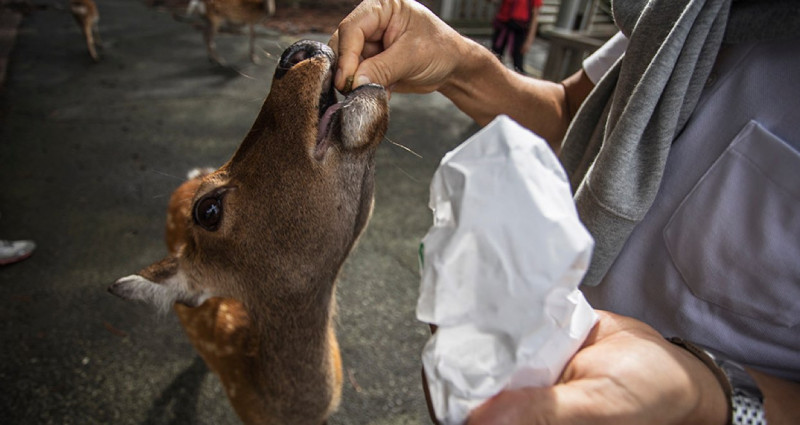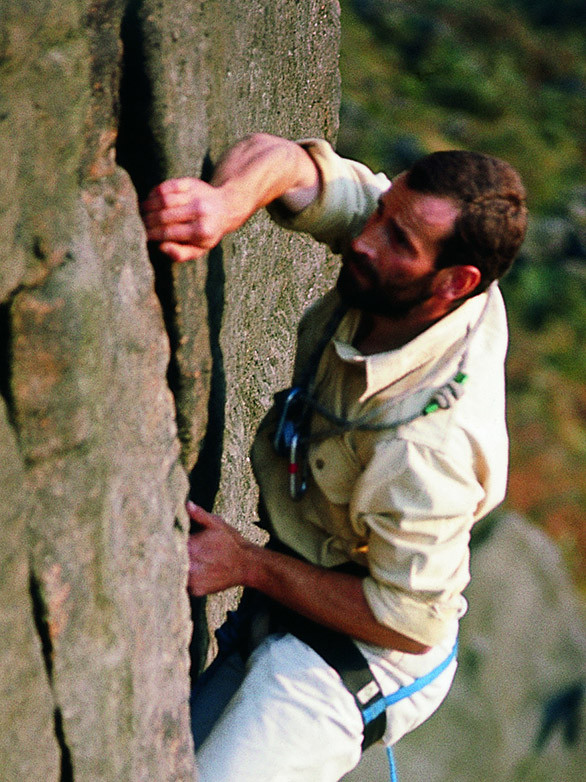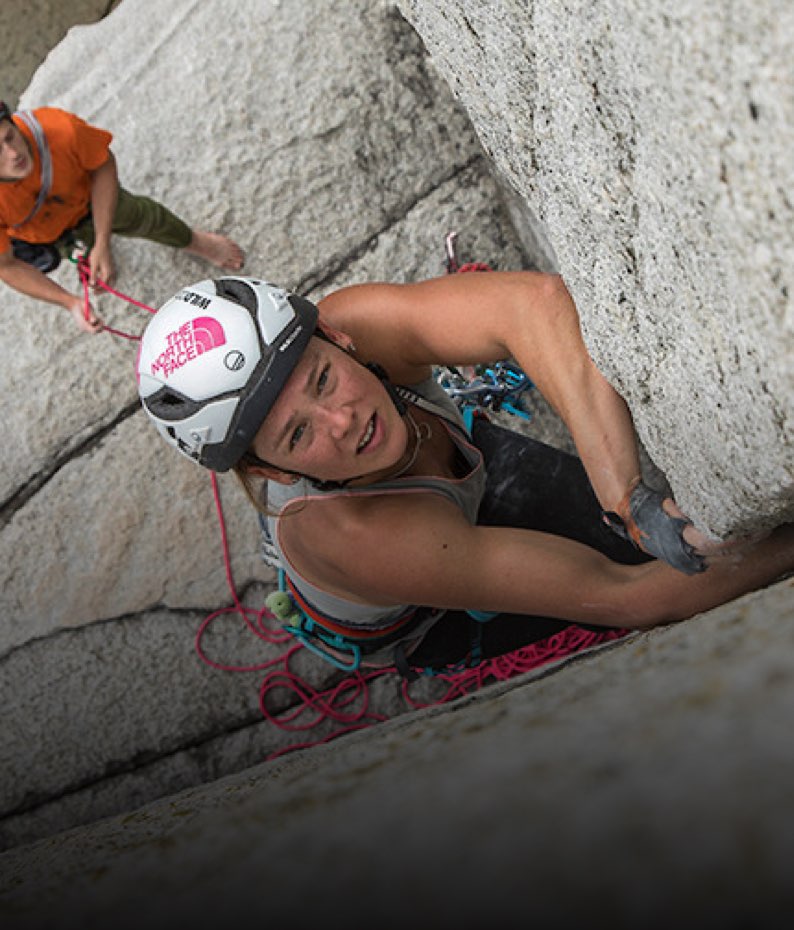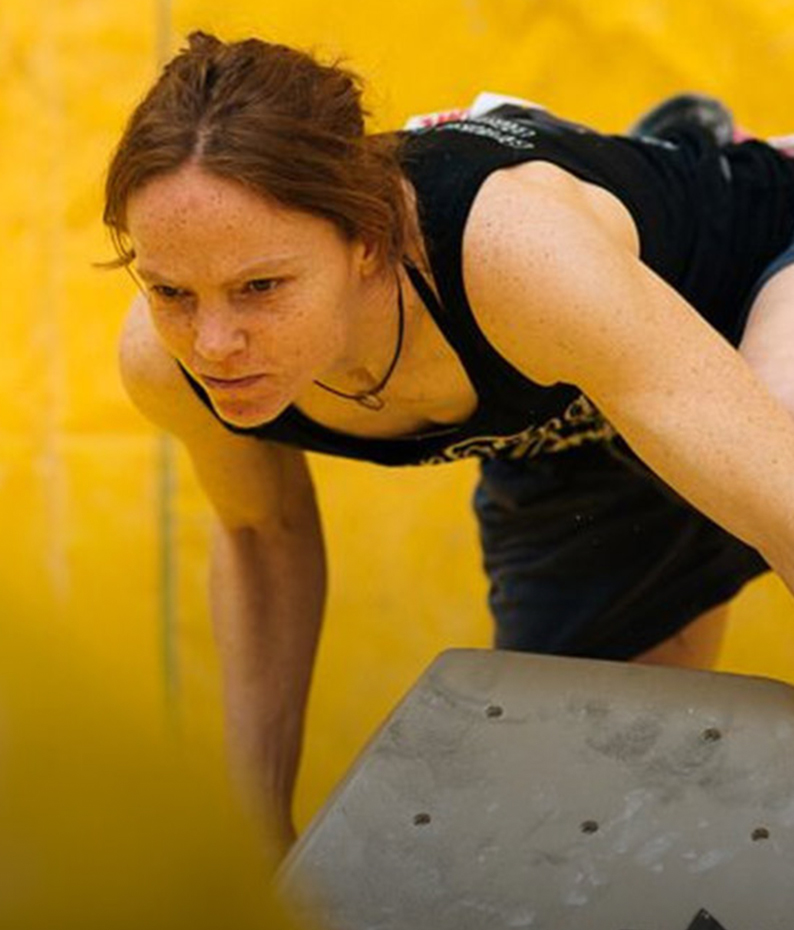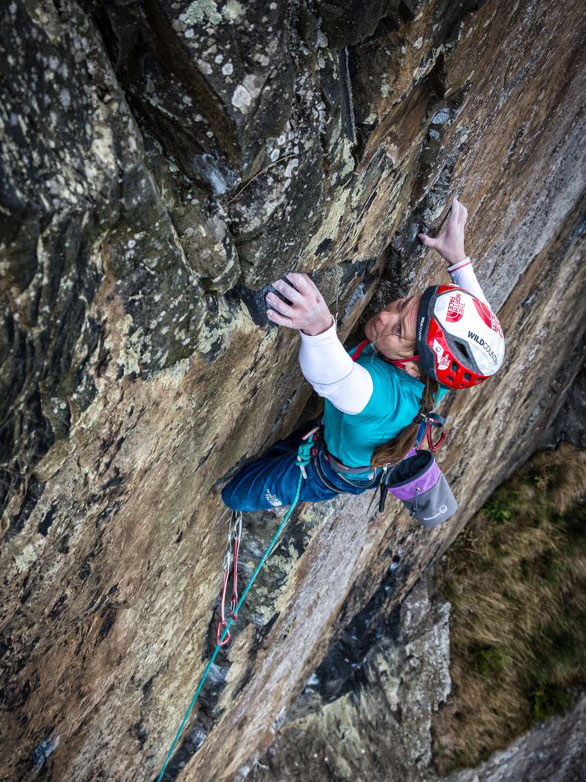Spendenaktion für den Hubschrauberlandeplatz Sheffield
Alle Einnahmen dieser Veranstaltungen gehen direkt an Helipad Appeal, um einen neuen Landeplatz für die Notaufnahme des Northern General Hospital zu finanzieren.
Als der blasse Brite, der ich nun einmal bin, fühlte ich mich wie verwelkter Spinat, der in der Sonne verbrennt. Aber die Anstrengung in der reibungslosen Hitze würde mich nicht von der Erkundung neuer Routen und zahllosen Abenteuern abhalten. Nachdem ich insgesamt zehn Wochen auf zwei verschiedenen Trips mit dem Klettern in ganz Norwegen verbracht habe, neue Routen und unberührte Wände mit dem Kanu und meiner Freundin entdeckt habe, freue ich mich auf meine nächste Möglichkeit, wieder zurückzukehren.
Eine Reise voller Sonnenschein ist nicht unbedingt das, woran die Leute denken, wenn du sagst, dass du zum Klettern nach Norwegen fährst. Es ist sicher nicht das, was ich erwartet habe, nachdem ich meine Wollsocken und Daunenjacke eingepackt habe. Ich denke, die meisten Menschen verbinden Klettern in Norwegen mit Regen und Angriffen, aber es gab kaum etwas von Beidem.
Der Festivalleiter Matt Heason sagte:
“‘„Das ist das dritte Jahr, in dem ShAFF
die Sheffield Hospitals Charity unterstützt
und wir freuen uns, dass Wild Country
sich uns bei der Spendensammlung für
Helipad Appeal anschließt.
Da sich ein Drittel von Sheffields Berandung im Peak District befindet, ist die Stadt ein Magnet für Abenteuersportler, aber die Realität ist, dass Unfälle passieren und die schnelle Hilfe, die eine Hubschrauberambulanz bietet, könnte potenziell Leben retten. Als Gemeinschaft von Kletterern, Läufern und Radfahrern würden wir alle davon profitieren und als bürgerorientiertes Festival sind ShAFF und Wild Country stolz, diesen Aufruf zu unterstützen“.
Wild Country, Marketingleiter Steve Foster sagte: Wild Country ist stolz, diesen Aufruf zu unterstützen, von dem jeder Outdoor-Liebhaber profitieren wird, der den Peak District besucht. Wir sind uns bewusst, dass das Luftrettungswesen existiert, aber wissen es erst zu schätzen, wenn wir persönlich betroffen sind. Ohne die Rettungsteams, die Luftrettung und das Notfallteam des NGH hätte Dionnes Situation sehr viel schlimmer sein können. Jeder bei Wild Country war schockiert von dem Unfall und allen, die an ihrer Rettung und ihrer medizinischen Pflege beteiligt waren, sehr dankbar.
David Reynolds, Direktor von Sheffield Hospitals Charity sagte: „Ich bin sehr dankbar, dass ShAFF und Wild Country unseren Helipad Appeal befürworten. Ich hoffe, dass ihre Unterstützung die Menschen dazu ermuntert, das Festival zu besuchen, um zu spenden, weil wir so nah an unserem Endziel sind. Ein neuer Hubschrauberlandeplatz ist für alle Menschen, die in Sheffield und der Umgebung wohnen, lebensnotwendig. Jeder von uns könnte an einem Unfall beteiligt sein oder in einen medizinischen Notfall geraten und in diesen Momenten würden wir alles für die beste medizinische Versorgung geben – so gut wie möglich, so schnell wir möglich“.
Im September 2014 erlebte Dionne Davis, eine unserer Mitarbeiterinnen, hautnah, wie wichtig die Luftrettung ist: Sie fiel bei Stanage Edge aus etwa 10 Metern Höhe.
So erinnert sich Dionne an die Geschehnisse dieses Tages:
„Als ich langsam verstand, was passiert war, hatte die Bergrettung die Situation schon voll im Griff und alles unter Kontrolle. Ich konnte hören, wie sich die Propeller des Hubschraubers näherten. Alle Kletterer, die an diesem Tag in der Gegend waren, kamen zusammen, um eine Menschenkette zu bilden und trugen mich auf der Trage zum Hubschrauber. Glücklicherweise waren meine Verletzungen nicht lebensbedrohlich, aber wäre dem so gewesen, hätte die Luftrettung mein Leben retten können. Ich kann mich nicht oft genug bei der Luftrettung, der Bergrettung, allen Mitarbeitern im Krankenhaus und Bergkameraden für alles bedanken, was sie an diesem Tag getan haben“.
Das Helipad Appeal wurde im Oktober 2014 gestartet, um 2 Millionen Pfund für den Bau eines neuen Hubschrauberlandeplatzes am Northern General Hospital zu sammeln. Es fehlen noch 198.000 Pfund, um das gesetzte Ziel von 2 Millionen zu erreichen. Der neue Hubschrauberlandeplatz ermöglicht, dass Patienten, die lebensrettende Maßnahmen benötigen, innerhalb von Sekunden nach der Landung in die Notaufnahme gebracht werden können, wodurch kostbare Zeit gespart wird. Und bei der Behandlung von schweren Unfallverletzungen ist jede Sekunde wichtig.
Dr. Stuart Reid, Berater für Notfallmedizin und klinische Leitung für Unfallverletzungen am Sheffield Teaching Hospital sagte: „Als eines von 26 Unfallzentren im Land erhalten wir Patienten aus einem großen geographischen Gebiet, einschließlich South Yorkshire und Peak District in North Derbyshire. Eine Hubschrauberlandeplatz in wenigen Sekunden Entfernung zu haben, bedeutet, dass wir die Patienten schneller behandeln können, was den bedeutenden Unterschied machen könnte, denn jede Sekunde zählt“.
„Wenn jemand einen schweren Unfall und mehrere oder ernsthafte Verletzungen hat, kann die Dauer, bis sie fachärztliche Versorgung erhalten, den Unterschied zwischen Leben und Tod ausmachen, und deswegen ist dieser Aufruf so wichtig“.
Weitere Informationen findest du auf www.sheffieldhelipad.com
Für ShAFF und Wild Country Presseanfragen wende dich bitte an: Jenny Brown unter 0777 928 1114 oder [email protected] oder besuche www.shaff.co.uk.
Für Sheffield Hospitals Charity kontaktiere Sarah Stables unter 0114 271 1355 [email protected].
1 ISLAND, 2 MONKS AND UNTOUCHED GRANITE
“Why did James and I pick a small dot on the other side of the planet?”
Because Yuji told us about it. The last time Yuji proposed us a trip, we ended up in Kinabalu, the now oh so famous mountain where untouched granite will overwhelm the climber. The Real Rock tour has thrown Kinabalu into fame, but 5 years ago, when we went there, no climber could even put it on the climbing
Kinkasan is a small island not far from Fukushima, on the north east side of Japan. It has 26km circumference and is inhabited by two monks. From Tokyo it is a six hour journey. Yuji didn’t say that much more: Kinkasan’s coast is covered with granite cliffs, and there is a Shinto shrine on it. Yuji mentioned as well the damages made by the tsunami…
We began our journey with next to no expectations about the climbing, and a big question mark for the rest. 3 days in the trip and I know exactly why we came: for Japan.
2 years ago we spent a week in this unique country and both James and I knew that we had to come back one day: how could I compare it? Well, the first time you taste wine, you have heard a lot about it. But you smell, and you only smell the alcohol, you taste and you can’t put words on it because wine is subtle, complicated and requests an education. You have to go back to it, learn to enjoy, differentiate and remember. Japan is maybe a little bit like wine.
There is this astonishing mix of modernity (the Japanese toilets and their multi jets, music and self cleaning options give you an idea of the immensity of your difference) and spirituality, respect, focus.
We arrived at Base Camp, the gym that Yuji opened 5 years ago in Tokyo, and I oscillate between marvel and shame. I am a pro climber, and most of the boulders are too hard for me, the Japanese climbers around me seem to evolve so effortlessly, like flying cats on the wall. But then you realise: the world championship have just finished in Paris and in the bouldering competition, 3 of the 6 medals are not only Japanese, but from Tokyo, from Base Camp. Yuji and his company helps the athletes become professional and they often climb together. Shall I repeat that? Half of the world’s medals come from one gym! Surely there is no wonder that Yuji owns that gym… But that is only just the very top of the iceberg, because behind this 3 medals, there are a lot of other athletes with an incredible level. I have never seen so many good, extremely good boulderers in one place. And I am a former competition climber, trust me, I know what I am talking about.
“Why are they so good?”
The answer is surely complicated but here are a few elements: climbing has become very trendy in Japan, with over a 100 gyms in Tokyo. The Japanese body type is perfect for climbing; light, powerful and explosive muscles. The Japanese constant pursuit of perfection pushes the athletes to train hard, just like everyone around them simply accomplished every task with perfection.
It was dry for the crossing, and after unpacking our bags at the shrine we bouldered on a nearby beach for 1 hour before the rain came. With so much rock to see and so little time, we hiked out anyway along the coast to search out potential lines. The rain became heavier, we became wetter, and after 4 soggy hours we returned to the shrine, hopes high but spirits low. We’d been preparing this trip since September 2015, putting the team together, finding funding from sponsors, organizing the local logistics, yet it would all be in vain if the weather didn’t brighten up.
A morning of rain gave us the excuse to sit down and record some interviews, though truthfully we had little to say as we’d done little climbing. Toru, ever the silent optimist finally dragged me out to the closest boulder spot during a break between two showers, and we were surprisingly able to climb! Toru lived up to his reputation of boldness and brilliance, making the first ascents of two of Kinkasan’s boldest and hardest problems. Finally things were looking up. The forecast was good for the following days, and group psyche could not have been higher. We began to plan our upcoming adventure and our first trip to the other side of the island – the area with the highest concentration of rock, and the biggest cliffs, but had to cut them short as bad news broke.
With my thirst for climbing temporarily quenched, we left the island in limbo, happy, yet sad, but knowing we’d be back in less than 24 hours. We passed the day visiting some of the worst tsunami affected towns in an effort to better understand what hardships the local people had to live through, and how they are moving forwards towards the future. It is one thing to watch the news from the comfort of your lounge back home, it is another thing entirely to see it first hand, and speak to the people who have lost everything - houses, possessions, loved ones!
Suddenly our troubles with the rain seemed embarrassingly small, and we remembered why we were actually here in the first place.
Our personal climbing desires must come second to the larger goal of showing this place to the world. Rain or shine, we have to get out there. Hike around, document the potential, and if in the end we are lucky, open up some new routes.


